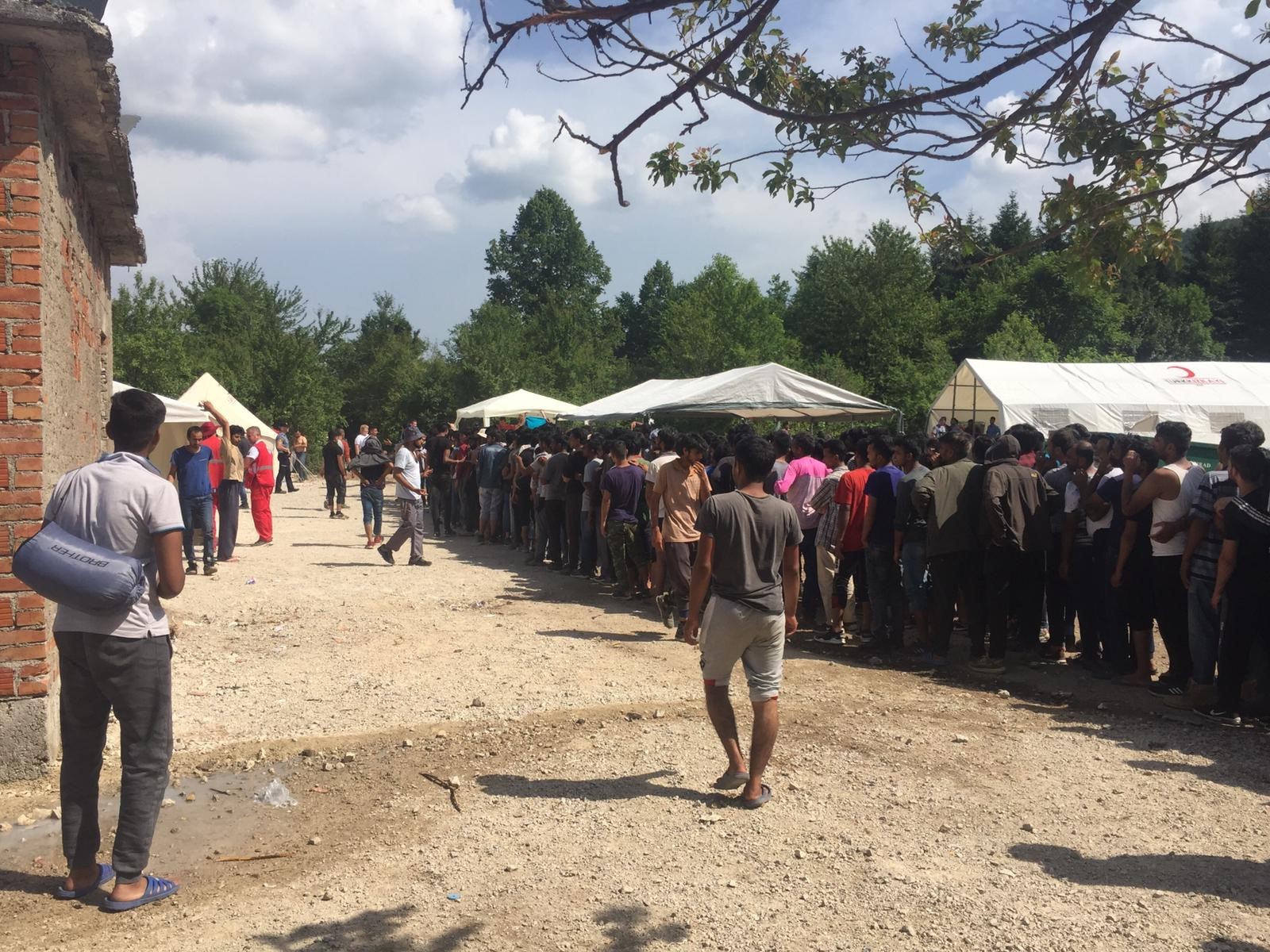An emerging humanitarian crisis at the EU’s border
In 2018, Bosnia and Herzegovina became the main transit country in the Western Balkans, with almost 25,000 migrants arriving. By the end of 2019, this number is likely to grow significantly, with almost 13,000 people already registered this year. In fact, the real figures could be much higher, as many people do not register either because of bureaucratic obstacles, or because they intend to move on to other countries. Some of these people hope for an opportunity to enter the EU through the 900km border with Croatia.
Increasingly strict border control policies in Croatia, Hungary and Slovenia are contributing to this rise in arrivals, which is putting services and infrastructure in Bosnia and Herzegovina under growing strain. Most of the existing temporary reception centres are operating at full capacity, while some people are still sleeping in makeshift camps on the roadside. Access to international protection is also challenged by a lack of adequate legal assistance and limited numbers of trained staff and interpreters to register asylum-seekers.

Ongoing pushback practices are exacerbating the situation. As EU countries step up efforts to prevent migrants from entering their territories, more and more migrants are left stranded at the EU’s borders, including in Bosnia and Herzegovina. The living conditions faced by migrants in the country will therefore likely continue to deteriorate.
Most of the people arriving suffer from physical injuries such as blisters, cuts, and sprains, as well as exhaustion, hunger, dehydration and trauma – their vulnerabilities are intensified by the risks and dangers faced along migratory routes. The humanitarian situation currently unfolding in and around the Vucjak camp near the Croatian border, is particularly worrying. “Living conditions at the Vucjak site are completely unacceptable, they’re not dignified’’, reports IFRC spokesperson, Katarina Zoric. “Until recently, people were living without sanitation. They didn’t have toilets for four weeks, and were therefore forced to use the areas near their tents. There is no electricity. People are eating on the ground and during the night snakes are entering their tents’’, she adds. Concern for the health safety of more than 700 migrants staying in the area is also mounting, as the city rests on a former landfill and is surrounded by mine fields.
Based on the request of local authorities and with support from local resources and some Red Cross Red Crescent partners, the Red Cross Society of Bosnia and Herzegovina has been providing critical basic assistance in Vucjak, including by delivering first aid, as well as food, hygiene items, tents and sleeping bags. It has also been working with the International Committee of the Red Cross (ICRC) to ensure that minefields are clearly marked and that migrants are aware of the associated risks, in collaboration with landmine experts and local authorities. In addition, six mobile Red Cross teams have been giving food, water, hygiene items, first aid and psychosocial assistance to people on the road.
.jpg)
However, more needs to be done to protect the fundamental rights of all migrants and guarantee that they have access to basic services and dignified living conditions. Importantly, increased funding is critical to addressing the acute humanitarian needs of migrants in Bosnia and Herzegovina and reinforcing the country’s reception capacities. Furthermore, to alleviate the pressure at the EU’s borders, Member States should refrain from practices which jeopardize people’s right to seek asylum and to be protected against refoulement. Implementing independent border monitoring mechanisms would help to ensure compliance with international and EU legal obligations.
The International Federation of Red Cross and Red Crescent Societies (IFRC) is appealing for EUR 2.99 million to support the operation implemented by the Red Cross Society of Bosnia and Herzegovina.
For media inquiries, please contact Eva Oyón on: eva.oyon@redcross.eu or +32 2 235 09 22

